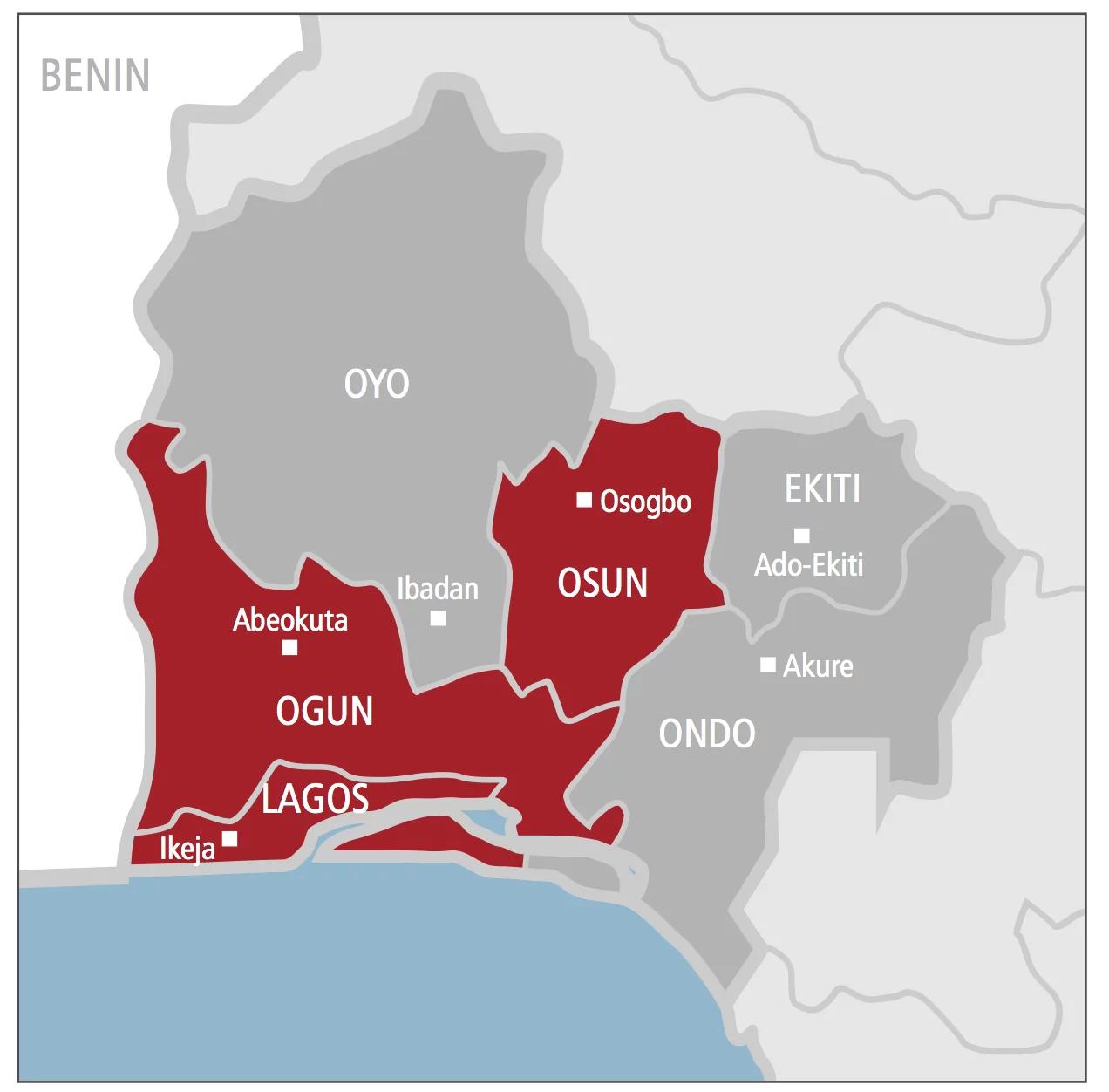The principle of territorial acquisition following successful conquest by a victorious party in a war between protagonist states is recognised in international law and convention. There are several instances to buttress this. Today the German speaking parts of Alsace and Lorraine are under the French republic. Similarly in America, many of the territories that eventually came under American control were acquired at the expense of France, Spain and the Netherlands.
Thus the clamour by the South-West for a return of the Yoruba speaking part of the North to the South-West region as part of the restructuring of Nigeria is dodgy at best. Having been incorporated formally as part of northern Nigeria and recognised as such by relevant statutes the only way those territories could be repossessed will be either by the same process that they were ceded in the first place or by negotiated settlement.
Although some in the South-West are convinced that secession from Nigeria would be the best option to enable the Yorubas establish an Oduduwa republic, objective factors however do not support this view.
Was there ever a properly structured Yoruba nation in history? Indeed has ‘’Yoruba’’ been used to apply to the very people who now claim it as their ethnic term of identification before the nineteenth century?
Discounting the Hamitic myth of Oduduwa as the progenitor of the Yoruba, the only entity in recorded history that came close to being a Yoruba nation was the Oyo Empire. Historical records show that the impetus for the formation of the Oyo Empire was principally for slave raiding and export. What we know further about the Oyo Empire was that at the time of the coming of the British, the empire had collapsed and what followed was an internecine civil war amongst the various constituents of the empire. Efforts to constitute a Yoruba nation by Ibadan, the successor state to the Oyo Empire fared very badly throwing the Yoruba city states into more bloodletting where whole towns like Ijaye and Oke-mesi were permanently obliterated from existence. This was the state that the British met Yoruba land and had they not intervened to restore order, there probably would have been no Yoruba land as we know it today. The British intervention not only helped save the Yorubas from themselves, but also enabled them through favourable economic and commercial policies to dominate the rest of Nigeria from colonial times till date. Thus if any part of Nigeria can be said to be more favoured by the British it is the South-West.
Fast forward to today. Most nations are built on shared historical experience and backgrounds. On what historical platform will the putative Oduduwa republic be built? On the status quo ante the 1886 peace treaty which finally ended the freewheeling bloodletting in Yoruba land by the British? On the platform of the Oyo Empire which throughout its existence was riddled with vicious internal struggles leading to its inevitable collapse? Or on the template of its successor, Ibadan, which marked the total collapse of what little order that existed among the Yoruba towns of the nineteenth century?
Or perhaps the Yorubas are telling the rest of Nigeria that having been favoured by the British colonial authorities to dominate and control the economic patrimony of the country from 1865 to date they have garnered enough economic weight to break out and stand on their own regardless?
It seems the lessons and covenant of the British supervised truce that ended the Yoruba civil wars of the nineteenth century at Imesi-ile had not been sufficiently drilled and imbibed down the generations in Yoruba land.
In this regard as a people who hold the major aces in the Nigerian scheme of things and who have been the pacesetters of many things in modern Nigerian history, it is rather incongruous that some among the Yorubas of the South-West would contemplate the Amotekun regional security arrangement as a platform for secession from Nigeria. Indeed it is not lost on Nigerians that the Amotekun platform and the accompanying threats of secession are political gambits deployed by the South-West to clinch the presidency in 2023. This has been the well-worn political strategy deployed over the years by the South-West to extract political concessions. It does not matter whether they are in opposition as during the first and second republics or under the current administration of President Buhari, in which they are a part of. This has proven the overarching political engagement strategy of the South-West with the rest of Nigeria. From the contrived political crises of the first republic to the June 12 debacles, the South-West has variously profited politically from this with political and economic concessions granted it.
Pursuing their engagements with the rest of Nigeria this time around using the Amotekun platform, the Yorubas stand the risk of overreaching themselves and getting a political blowback in the process. Nigerians will likely see it as one dangerous caper too many in the familiar Yoruba politics of contriving political crises to achieve narrow political objectives. The usual political brinkmanship deployed so often by the South-West in bringing the nation to its knees in order to gain political mileage may not work this time around.
That the South-West despite its head start in many areas of endeavour in Nigeria still gripes about its second fiddle role in the political stakes is traceable to this preference for opportunistic political quick fixes. Although this results in short term gains, it however prevents the South-West from leading Nigerian politics from the front as it should rather than from the back where it has remained stuck.
(Concluded)

 Join Daily Trust WhatsApp Community For Quick Access To News and Happenings Around You.
Join Daily Trust WhatsApp Community For Quick Access To News and Happenings Around You.

